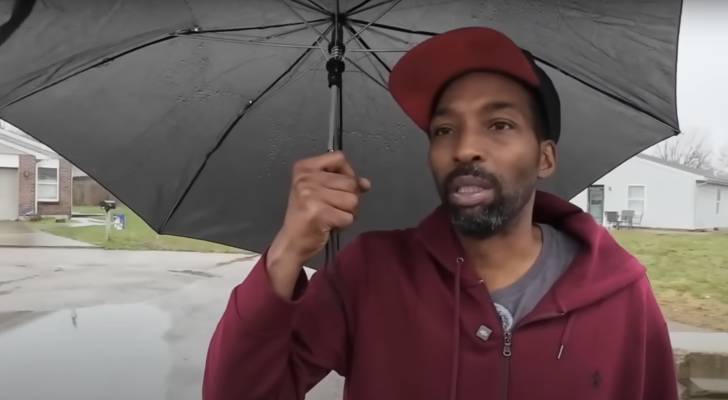
Jason Fauntleroy thought he’d snagged a great deal when he purchased a vacant lot in Trenton, Ohio, for $5,000 from the Butler County Sheriff’s Office auction three years ago.
Yet he quickly realized he got more than he bargained for.
Don’t miss
He only planned to use the lot to build himself a home, but the price included the entire street, where several other homes are located.
Now, the city of Trenton is trying to reclaim the street through eminent domain. Fauntleroy told WCPO 9 News he’s not being offered what he deserves.
Advertisement
Advertisement
“They shut me out,” Fauntleroy said of his interactions with the city. “They blocked my calls. It’s hard to even get through to anybody. It’s been a nightmare.”
How did this happen?
When the city began the process of reclaiming the land, Fauntleroy says they only assessed the value of the lot — not the entire street.
“I’m not sure how that [Fauntleroy’s ownership of the street] occurs other than it was a private drive that was created through a homeowner’s association,” Trenton City Manager Marcos Nichols told WCPO News.
“The homeowner’s association was responsible for maintaining that property and upkeeping it.”
Advertisement
Advertisement
When asked why only a portion of the lot was considered for the appraisal value, Nichols replied, “I cannot speak to the appraised value.”
According to Nichols, the city plans to convert the private drive — which is the only way to access several homes on the street — into a publicly maintained roadway.
Read more: Are you rich enough to join the top 1%? Here’s the net worth you need to rank among America’s wealthiest — plus 2 ways to build that first-class portfolio
Is this even legal?
Eminent domain does allow the government to seize private property for public use, but the law also requires just compensation for the property owner. The definition of “just compensation” is often subject to dispute.
Advertisement
Advertisement
More in U.S.
“Don’t just take advantage of someone because they don’t have the means of getting an attorney,” Fauntleroy asks.
Ohio has a long history with eminent domain, and Fauntleroy’s battle isn’t unique. In City of Norwood v. Horney, for instance, the Ohio Supreme Court ruled against the city, citing the importance of protecting property rights.
Fauntleroy’s case is different, though, as it involves converting a private drive into a public-use road. In a similar situation, the Ohio Supreme Court ruled in 2022 that eminent domain was permissible to restore access to the Newark Earthworks’ Octagon Mounds, finding the public benefit outweighed the private loss.
His best option may be to seek help from the local legal aid society, which assists lower-income individuals in accessing legal support. If successful, that could help him navigate Ohio’s eminent domain laws, push for an independent appraisal of the property and hold the city accountable.
What to read next
This article provides information only and should not be construed as advice. It is provided without warranty of any kind.
EMEA Tribune is not involved in this news article, it is taken from our partners and or from the News Agencies. Copyright and Credit go to the News Agencies, email news@emeatribune.com Follow our WhatsApp verified Channel




